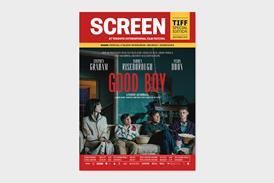
France’s largest rival broadcasters and local film organisations have made the rare move to come work together to create a body to protect the country’s audiovisual financial model.
LaFA (La Filière Audiovisuelle), literally, ‘The Audiovisual Sector’ has joined together the usually fiercely competitive TF1, M6 and France Televisions and producers’ union SPI and authors and composers’ guild SACD, among others. Their objectives are to make sure the French government maintains funding for public broadcasters, ensure compensation schemes for intermittent entertainment industry workers are preserved, retain the tax credit system for the film, audiovisual and music industries, and to protect intellectual property from AI both in France and throughout Europe with a regulatory framework for digital platforms across the continent.
“Our sector was divided, but we are facing tectonic shifts, shaking up and transforming our ecosystems, and affecting the economy and vitality of our industry”, said TF1 CEO Rodolphe Belmer, the head of the LaFA for the first two years, when when unveiling the project at TF1’s Paris headquarters this week
He will be joined by three vice presidents: Delphine Ernotte Cunci, CEO of France Télévisions who represents broadcasters, Nora Melhli, chair of the audiovisual division of independent producers’ union SPI, and Pascal Rogard, managing director of authors and composers guild the SACD who represents writers and artists. Other founding members include artists’ rights guild Adami, music group Sacem, royalties collective Scam and producers’ associations AnimFrance and USPA.
The group said in its mission statement: “At a time of radical change in the audiovisual sector, LaFA’s ambitions are to secure a sound business model for the industry, to keep pace with the transformation of the sector, to ensure diversity and innovation in our creative output, and to promote French cultural exceptionalism.”
LaFA will publish its first report in the spring of 2025 that will describe in detail the significance of the French audiovisual industry and its initial recommendations for future regulations.
Notably absent from the mix is pay TV giant Canal+ which declined to participate.








![[Clockwise from top left]: 'The Voice Of Hind Rajab', 'A House Of Dynamite', 'Jay Kelly', 'After The Hunt', 'The Smashing Machine'](https://d1nslcd7m2225b.cloudfront.net/Pictures/274x183/1/7/0/1459170_veniceawards_837515.jpg)










![[Clockwise from top left]: 'Nouvelle Vague', 'The Little Sister', 'A Private Life', 'Arco', 'It Was Just An Accident'](https://d1nslcd7m2225b.cloudfront.net/Pictures/100x67/6/2/0/1459620_nouvellevaguethelittlesisteraprivatelifearcoitwasjustanaccidentarpmk2filmsannecy_417202.jpg)



No comments yet